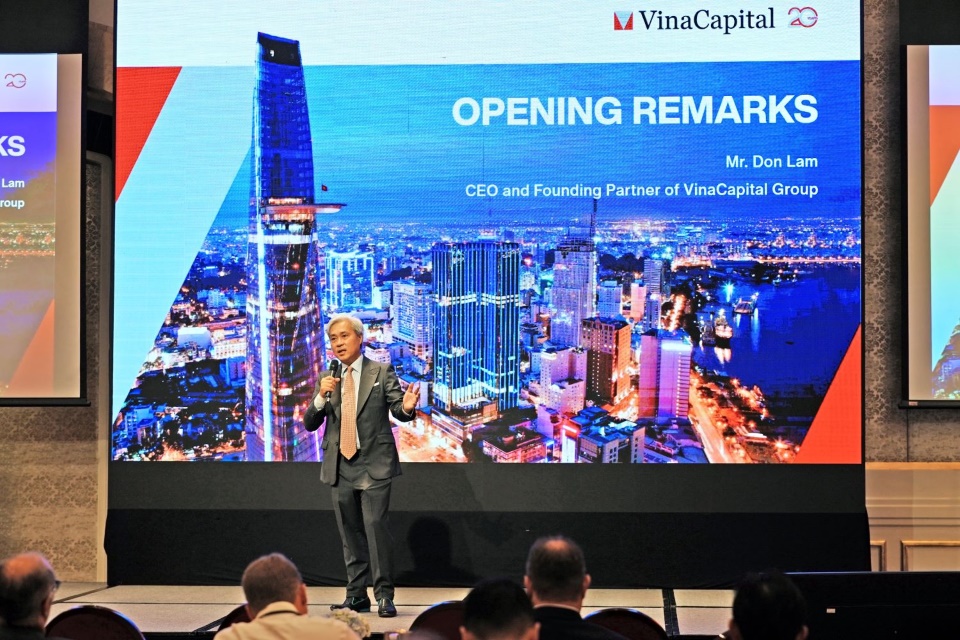HCMC – More than 150 international investors have come to HCMC to sound out investment opportunities in Vietnam.
An annual Investor Conference, organized by VinaCapital, took place in HCMC on October 3, featuring a diverse range of speakers representing various industries and sectors, ranging from startup tech companies to large industrial corporations and major financial institutions.
Don Lam, chief executive officer and founding partner of VinaCapital, said that the majority of participants came from Northeast Asia, specifically South Korea and Japan. These investors collectively manage funds totaling US$1 trillion.
Lam expressed optimism about attracting around US$1 billion of this capital into various sectors in Vietnam.
“We are honored to welcome international investors back to Vietnam, especially as this year marks the 20th anniversary of VinaCapital’s establishment and development. The strong presence of guests indicates that Vietnam is becoming an increasingly attractive investment destination. This is an opportunity for us to delve deeper into the compelling investment opportunities in the market,” said Lam.
He added that a week before the conference, VinaCapital organized a meeting with about 30 corporations from Taiwan, a global leader in the semiconductor industry. Taiwan’s semiconductor sector, although employing only 1.2% of its population, contributes to 20% of the country’s GDP.
Lam emphasized the investors’ keen interest in several growing industries in Vietnam, including renewable energy, green manufacturing, and notably, semiconductors and chips. This surge in interest comes after the recent upgrade of the Vietnam-U.S. relationship to a comprehensive strategic partnership.
Andy Ho, chief investment officer of VinaCapital, provided an economic analysis of Vietnam. He estimated Vietnam’s GDP would grow by as low as 4.7% this year, citing a 10% decline in exports and weak domestic consumption. However, he projected a recovery in 2024, with GDP growth returning to around 6.5%.
Ho also noted that the fall in exports to the U.S. has ceased, and orders are expected to rise. The Vietnam dong-U.S. dollar exchange rate remains stable, and the growing middle class is expected to sustain economic growth over the next decade, further solidifying Vietnam’s status as a significant destination for foreign direct investment, particularly from the U.S.









